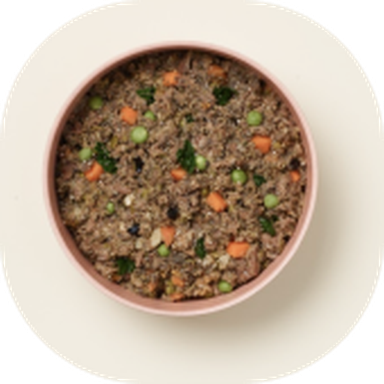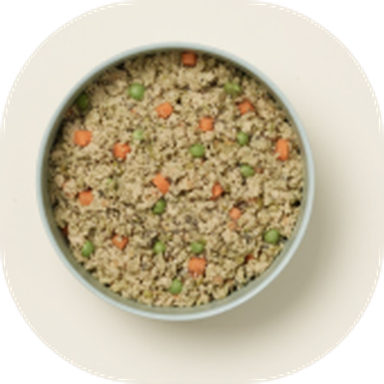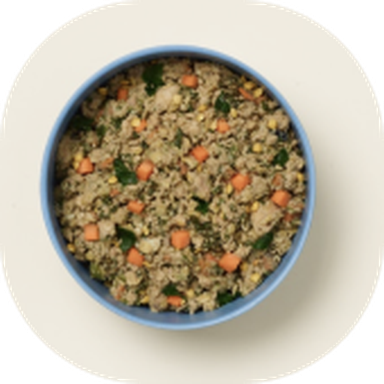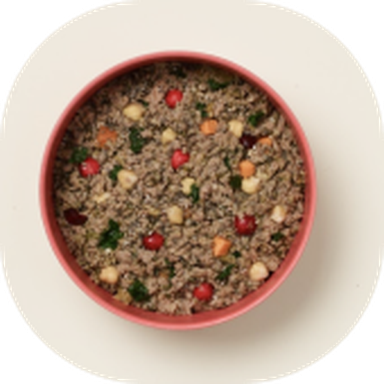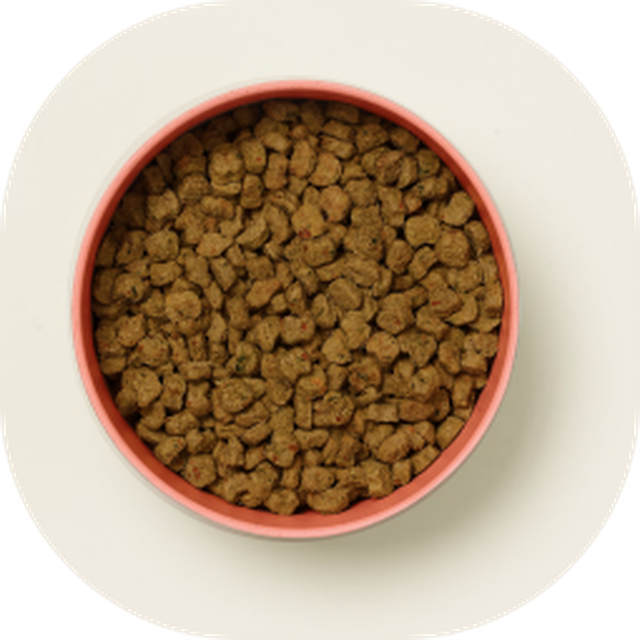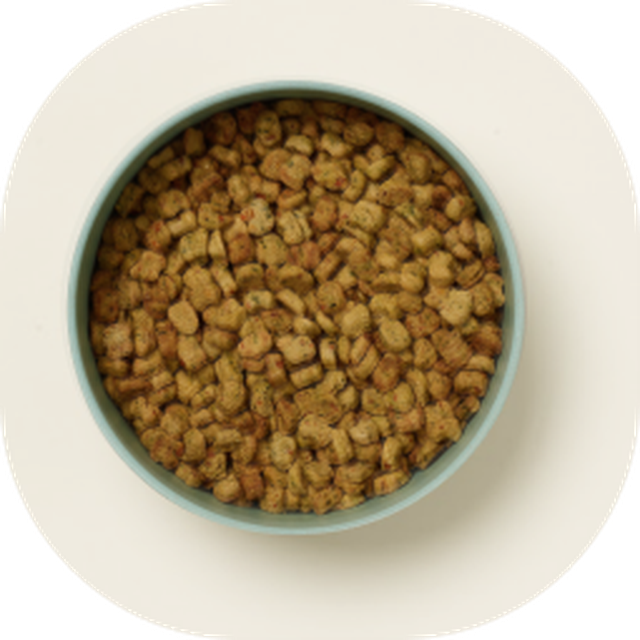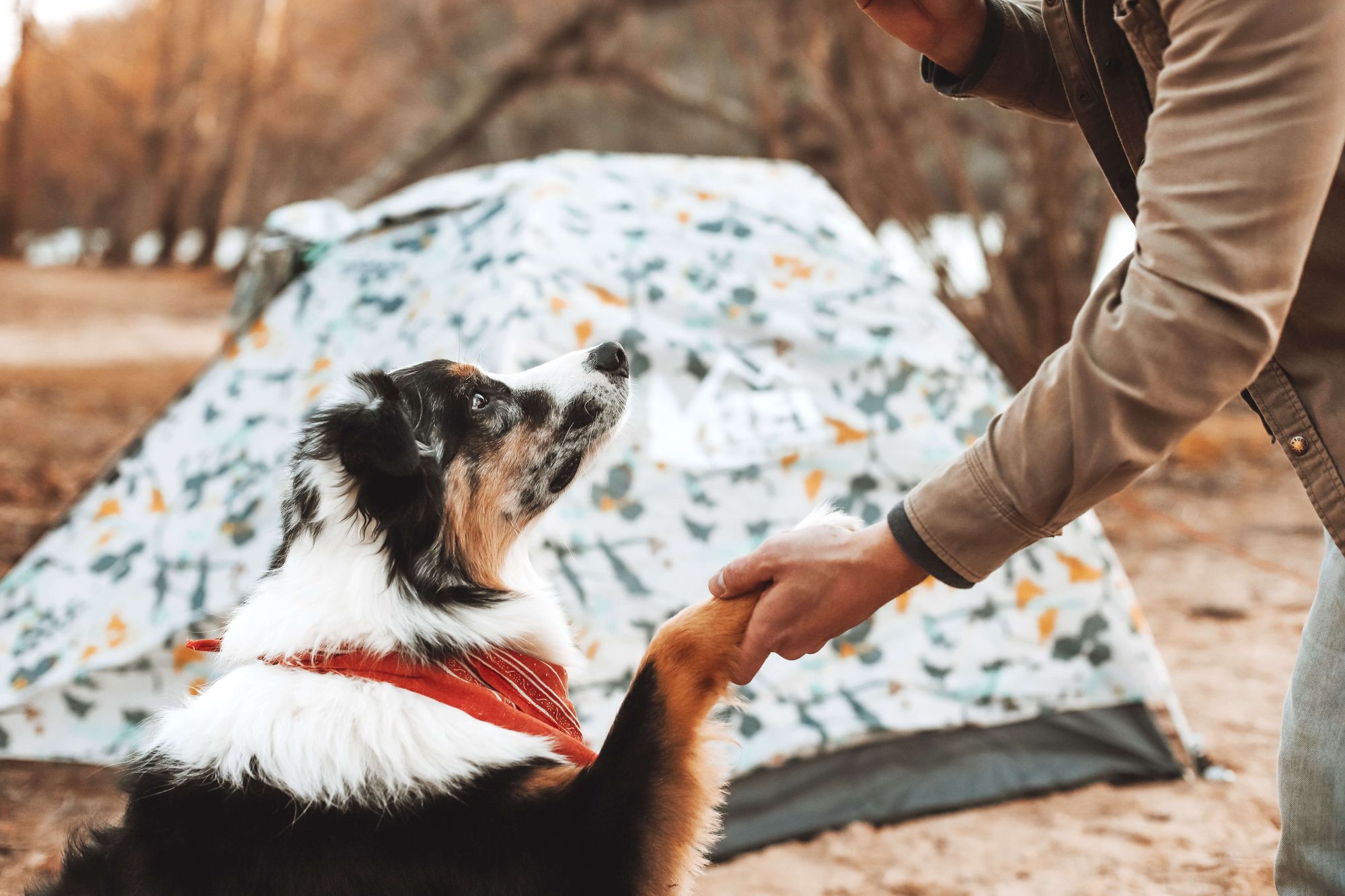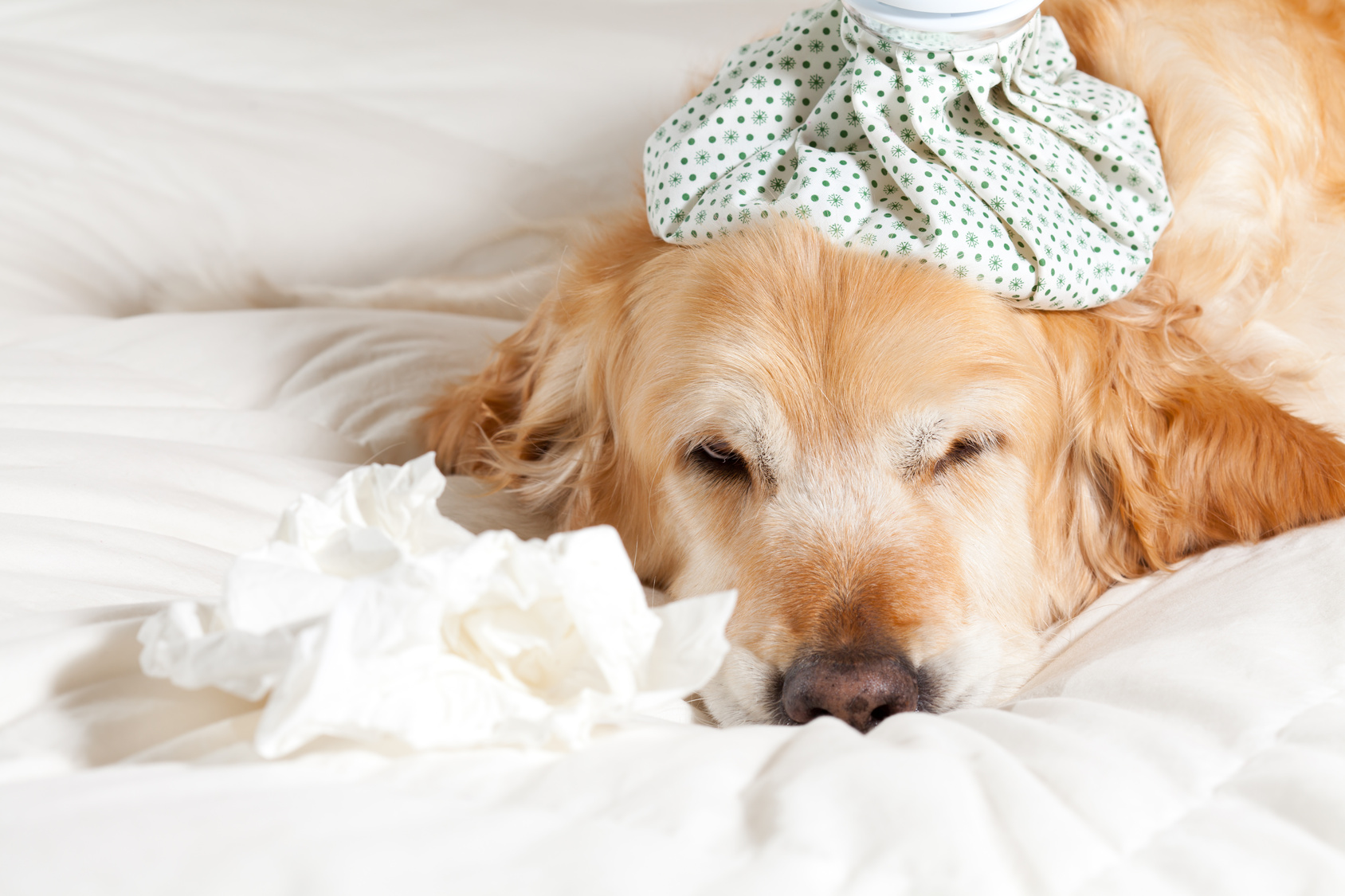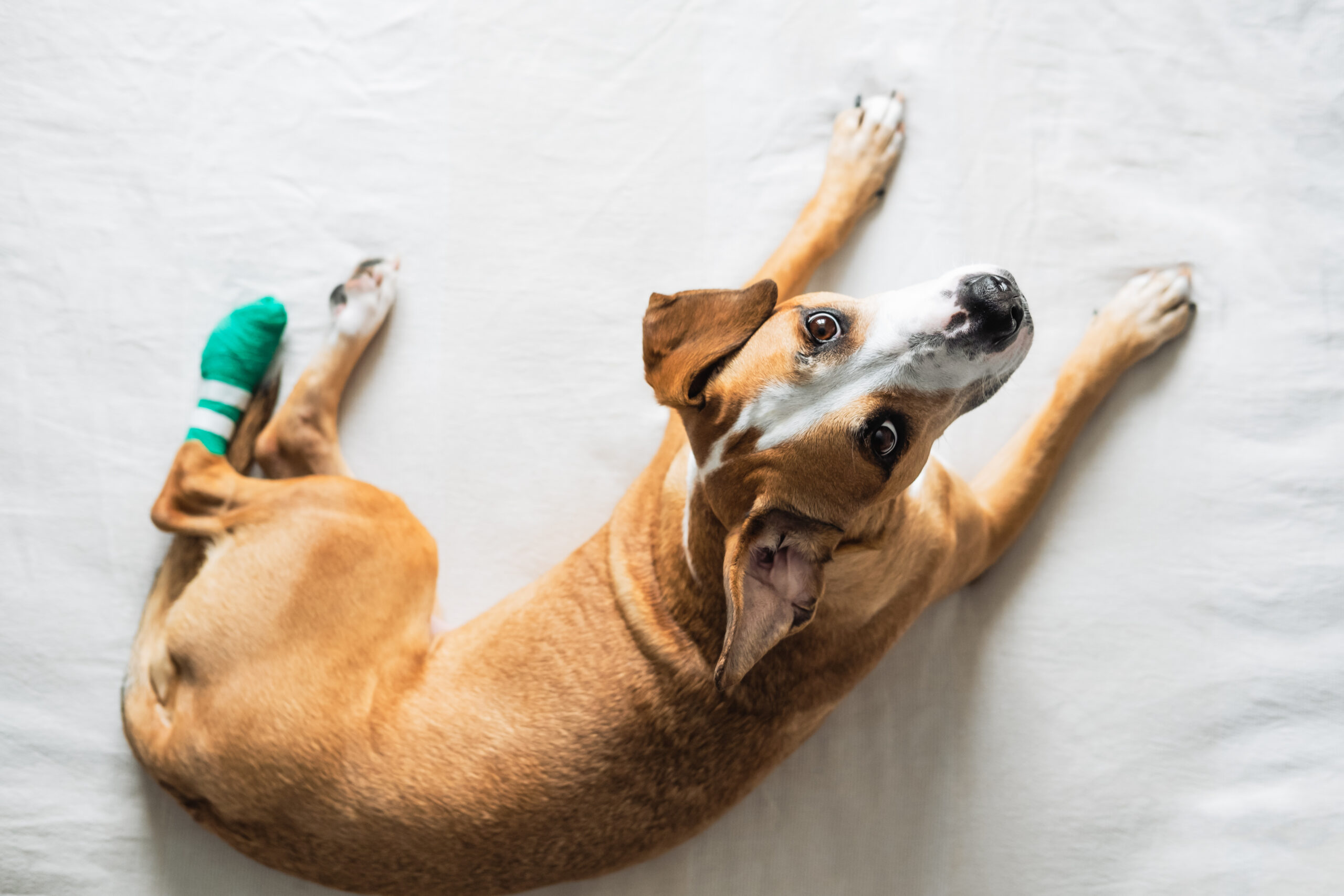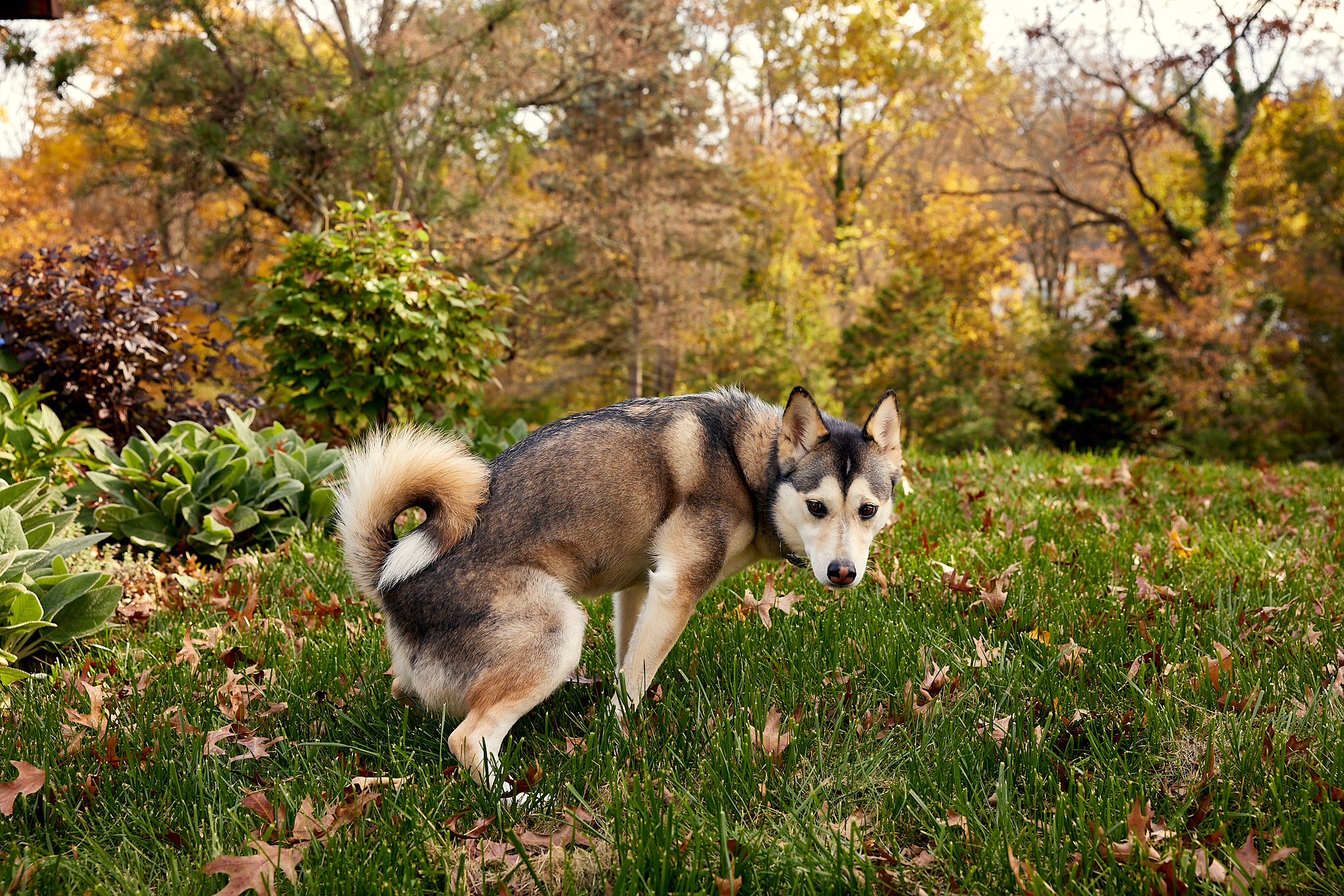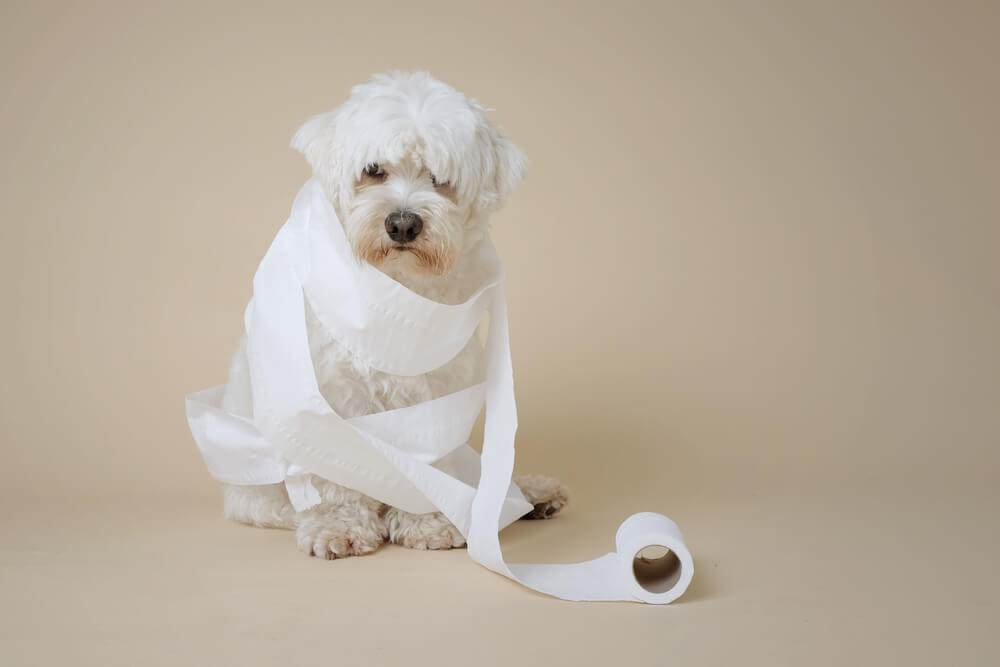Hey Ollie blog readers! We’re offering you an exclusive 60% OFF your starter box! Try now!
As pet parents, we joke about our Labs eating everything but the kitchen sink, or our Bulldogs lazing around all day. But we know that there are serious consequences to carrying around extra pounds (and it’s not funny when they get hip dysplasia because they’re overweight!) While all dogs are at risk, specific physical attributes and genetic predispositions can put some breeds at greater risk than others. Misconceptions people have about types of dogs can also play a role. “Some owners assume small dogs don’t need more exercise than running around the house or mistakenly believe some dogs are meant to be fat,” says Jerry Klein, Chief Veterinary Officer for the American Kennel Club. Here are the ten pups most prone to packing on pounds, and how you can help them lose the lbs.
Dachshunds

Why they put on pounds: Too much lounging and too little exercise can quickly turn your Weiner dog into overstuffed sausage. They’re also prone to Cushings disease, which leads to an overproduction of the stress hormone cortisol and increases appetite and weight gain.
How it adds up: Their small frame makes them prone to spinal issues and extra pounds put even more stress on the joints and back, making them more susceptible to slipped or ruptured disks.
Healthy weight rx: They may be little, but they still have lots of energy to burn. Take it slow—one step for you is about six for their little legs—and stick with portion-controlled, high-quality fat and protein meals.
Laborador Retrievers

Why they put on pounds: A genetic variation in labs makes them predisposed to food-seeking behavior and weight gain. Scientists believe dogs with the gene may have been favored because they were easier to train with treats, helping the mutation get passed down.
How it adds up: Lugging those extra pounds around their belly, trunk and neck ups their risk for arthritis, hip dysplasia and other weight-related diseases.
Healthy weight rx: Labs love lots of playtime and are always down for a good swim. They will eat anything, so be careful not to give them too many treats or table scraps.
Golden Retrievers

Why they put on pounds: These big dogs with a bigger appetite need a daily dose of exercise to stay healthy. They’re also more susceptible to hypothyroidism—a hormonal imbalance in the thyroid that can lead to weight gain.
How it adds up: Goldens are prone to joint disease, hip and elbow dysplasia—all of which can be made worse with the stress of extra weight.
Healthy weight rx: Regular exercise and a consistent diet of high-quality food. While Goldens may be easily motivated by treats, it’s always better to reward them with playtime.
Rottweilers

Why they put on pounds: As a large dogs, Rottweilers pack on pounds easily and they are often raised to be even bigger as guard dogs or police dogs. They were originally bred herding, so a lack of adequate exercise will also cause weight creep.
How it adds up: The more weight their bones have to support the worse it is for their hips, increasing their risk for osteoarthritic conditions. A fast-growing breed, excess weight in early life can be especially hard on joints.
Healthy weight rx: Set a regular meal schedule to avoid overfeeding. Daily walks are a must just opt for cooler times of the day because Rotties are sensitive to heat and humidity.
Pugs

Why they put on pounds: Even pugs at a healthy weight can have breathing problems—thanks to their squished noses and elongated soft palates—which can make exercise feel like a struggle. They will also eat endlessly.
How it adds up: Any extra weight greatly increases a pug’s risk for heart and respiratory issues.
Healthy weight rx: Feed meals at regular intervals to avoid overeating. Strenuous activity can be hard on their joints and respiratory system, so aim for gentle play and short walks during the cooler parts of the day.
Basset Hound

Why they put on pounds: Eager eaters with a tendency toward laziness, the floppy-eared pups are quick to gain weight without regular activity.
How it adds up: Short legs and long backs means extra weight puts even more pressure on the joints, increasing their risk for hip and elbow dysplasia and intervertebral disk disease.
Healthy weight rx: They may seem perfectly content on the couch, but Bassets need a long leisurely walk around the neighborhood daily. Limit their people food intake to avoid weight gain.
Beagle

Why they put on pounds: The same keen sense of smell that makes beagles such great hunters is what also leads them back to the food bowl for seconds (and thirds). They can also have higher rates of Cushings disease and hypothyroidism.
How it adds up: The added stress on their back from extra weight can lead to pain, injury and joint disease.
Healthy weight rx: These tracking dogs were meant to burn calories, so take them to the park and let them run free. Try a puzzle bowl for meal times to slow down eating or hide treats to keep your dog mentally stimulated.
Bulldog

Why they put on pounds: With their stocky build it’s easy to assume bulldogs are meant to be pudgy, but these pups were once highly athletic dogs. Like pugs, their flat-faces can make breathing a struggle and they don’t cope well with heat—all of which can lead owners to coddle them and avoid exercise, increasing their risk for obesity.
How it adds up: Carrying more pounds worsens breathing issues and increases their risk for hip dysplasia, a condition bulldogs suffer more than any other breed.
Healthy weight rx: Despite their lazy temperaments they need daily exercise—and a strict diet. Schedule daily short walks for times of the day when temps are mild.
Boxer

Why they put on pounds: Boxers are more susceptible to autoimmune thyroid disease—which can progress to hypothyroidism, a hormone deficiency that frequently leads to weight gain. They also love to eat, so portion control is key.
How it adds up: As well as hypothyroidism, Boxers can be prone to Cushings disease and have high rates of hip dysplasia, cancer, respiratory illness, and heart conditions made worse by an unhealthy weight.
Healthy weight rx: Boxers love to run, so make sure you’re meeting their exercise needs. Just be sure to schedule activity for cooler times of day. They can be prone to food allergies, too, so talk to your vet about any special nutritional needs.
Cavalier King Charles Spaniel

Why they put on pounds: This regal dog loves to eat like a king, gaining weight quickly when overfed thanks to their small frame. They can also develop hypothyroidism.
How it adds up: Cavaliers are susceptible to some genetic heart conditions that can worsen with weight gain.
Healthy weight rx: Don’t let these small lap dogs fool you into thinking they’re too fragile—Cavaliers need regular playtime. Feed them high-quality food formulas and measure out portions to avoid unnecessary weight gain.
At the end of your dog’s day, the best way to lose lbs is to eat a healthy, high-quality diet, make sure you’re feeding the right portion, and get them enough exercise. “They need set portions and consistent mealtimes to prevent all day grazing,” says Klein. “If they love to run you should figure out some routine that allows them to run because they thrive on that.” Regular weigh-ins are important too: “It’s hard to tell if your dog is putting on weight when you see them every day, so weigh them periodically,” says Klein. And while treats can be great for training, “remember to keep everything in moderation—it’s your job to say no as a pet parent.”
The Ollie blog is devoted to helping pet parents lead healthier lives with their pups. If you want to learn more about our fresh, human-grade food, check out MyOllie.com.
Tagged As:

The nutrition your dog needs,
the food they want.

Enjoying our articles? Subscribe our Newsletters and get new articles directly to your inbox
You might also like
26 April 2024
4 MINS READ
How Often Should I Take My Dog To The Vet?
Routine veterinary care is important for your dog’s overall health—but how often should your pup visit the vet? We answer this question and outline common health signs that warrant a veterinary…
by Ollie Pets
28 February 2024
6 MINS READ
Why Do Dogs Eat Poop & How to Stop It
Does your dog partake in poop? We get to the bottom of this unusual behavior, including its medical and behavioral causes, and how to address it.
by Ollie Pets
30 August 2023
6 MINS READ
Dog Diarrhea: How to Prevent and Resolve
Dog diarrhea is distressing for pups and their owners. Understanding common diarrhea causes can help you respond quickly and effectively to your pup’s intestinal issues.
